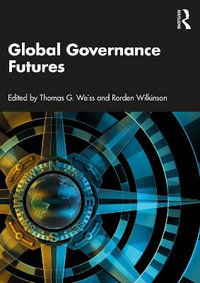
At a Glance
Paperback
$69.75
Aims to ship in 15 to 25 business days
ISBN: 9780801476471
ISBN-10: 080147647X
Series: Cornell Studies in Political Economy
Published: 27th May 2010
Format: Paperback
Language: English
Number of Pages: 304
Audience: College, Tertiary and University
For Ages: 18+ years old
Publisher: Cornell University Press
Country of Publication: US
Dimensions (cm): 23.5 x 15.5 x 1.9
Weight (kg): 0.44
Shipping
| Standard Shipping | Express Shipping | |
|---|---|---|
| Metro postcodes: | $9.99 | $14.95 |
| Regional postcodes: | $9.99 | $14.95 |
| Rural postcodes: | $9.99 | $14.95 |
How to return your order
At Booktopia, we offer hassle-free returns in accordance with our returns policy. If you wish to return an item, please get in touch with Booktopia Customer Care.
Additional postage charges may be applicable.
Defective items
If there is a problem with any of the items received for your order then the Booktopia Customer Care team is ready to assist you.
For more info please visit our Help Centre.
You Can Find This Book In
This product is categorised by
- Non-FictionBusiness & ManagementBusiness Communication & Presentation
- Non-FictionSociety & CultureSocial GroupsSocial Classes
- Non-FictionIndustry & Industrial Studies
- Non-FictionPolitics & GovernmentPolitical Ideologies & MovementsNationalism
- Non-FictionEconomicsPolitical Economy
- Non-FictionPolitics & GovernmentPolitical Science & Theory
- Non-FictionHistoryRegional & National HistoryAsian History
- Non-FictionSociety & CultureSocial Issues & ProcessesGlobalisation























